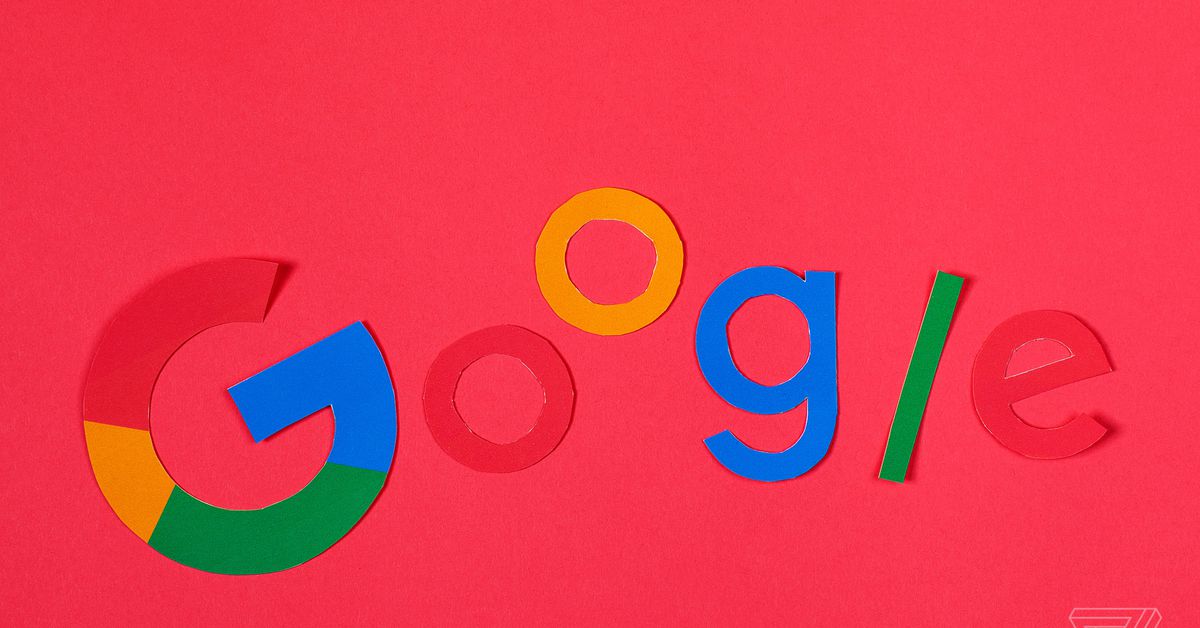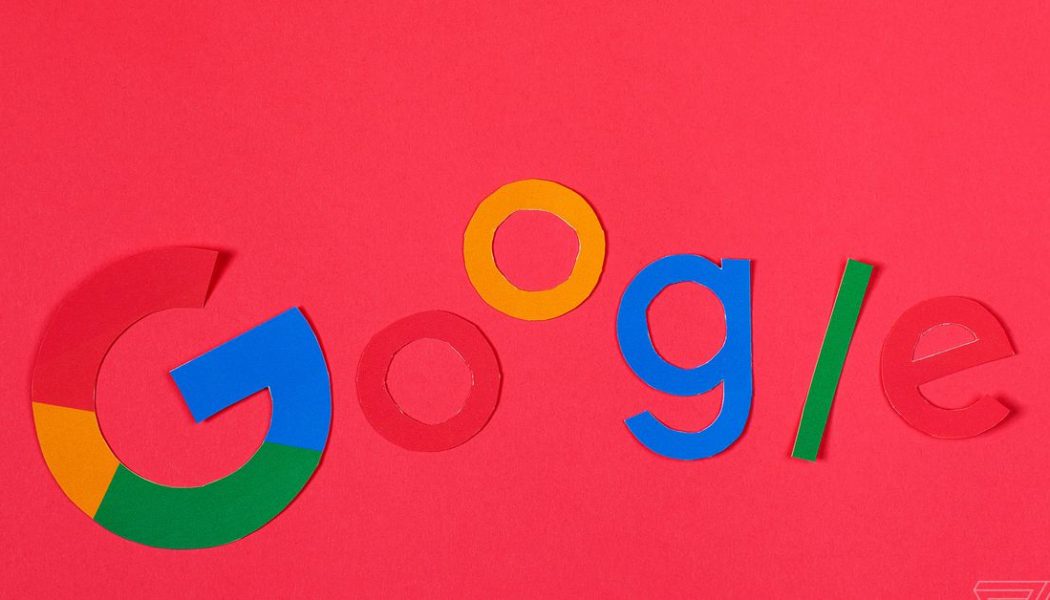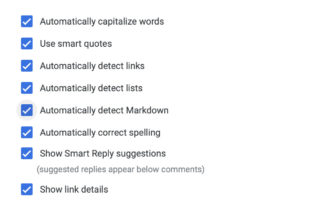
A recurring theme of this column has been that we have no meaningful antitrust enforcement in the United States. But last year, lawmakers and federal agencies began to stir, with the Federal Trade Commission requesting information from Facebook, Google, Amazon, Microsoft, and Apple. The potential action against Google, in particular, has been gathering momentum for some time. Fifty state attorneys general have opened an inquiry into the company, and in January they began collaborating with the Department of Justice.
The spread of the COVID-19 pandemic raised the prospect that any antitrust action could see a further delay. But on Friday, the Wall Street Journal reported that a lawsuit may be arriving shortly. Here are Brent Kendall and John D. McKinnon:
Both the Justice Department and a group of state attorneys general are likely to file antitrust lawsuits against Alphabet Inc.’s Google—and are well into planning for litigation, according to people familiar with the matter.
The Justice Department is moving toward bringing a case as soon as this summer, some of the people said. At least some state attorneys general—led by Texas Attorney General Ken Paxton, a Republican—are likely to file a case, probably in the fall, people familiar with the matter said.
The story goes on to say that it’s undecided whether all of this will be filed as one case or many. Among other issues, there are different theories of the case. Is the antitrust action against Google about its advertising business, or about its search business? That’s the thing having a user base in the billions — there are a lot of ways you can discourage competition.
“We continue to engage with the ongoing investigations led by the Department of Justice and Attorney General Paxton, and we don’t have any updates or comments on speculation,” a Google spokeswoman told me today.
The Journal wasn’t able to learn the lawyers’ theory of the case. But in a new paper, a former Obama antitrust official offers one of her own. Kendall and Keach Hagey wrote about it in the Journal on Monday:
“There is significant reason for concern that Google has violated U.S. antitrust law,” Yale University economics professor Fiona Scott Morton, the chief economist in the Justice Department’s antitrust division from 2011-2012, wrote in a new academic paper entitled “Roadmap for a Digital Advertising Monopolization Case Against Google.”
The paper argues Google is using its dominance in search as a springboard to dominate the adjacent market of display advertising, harming publishers, advertisers and consumers in the $130 billion digital advertising market.
Morton’s analysis is based on a December report from the United Kingdom’s Competition and Markets Authority. The report “found that Google had at least 90% market share in the tools publishers use to serve ads; between 40% and 60% of the market for supply-side platforms, or SSPs, the tools publishers use to accept bids from exchanges; and between 50% and 70% of demand-side platforms, or DSPs, the tools advertisers use to bid for digital ads.” Google disputes the study’s findings.
It would be nice if we could have a debate about Google and competition on the merits. But this is the United States and 2020, and so the debate is already tainted by partisan politics. Ken Paxton, the Texas attorney general who is leading the investigation for the attorneys general, is sending fundraising emails promoting his work. Reuters reported that one email said Texans “‘are put at risk’ by the company, ‘whose executives clearly display anti-conservative and anti-Republican bias, subtly controlling what Americans see when they search for information about national political issues.’”
More recently, President Trump tweeted that “the Radical Left is in total command & control of Facebook, Instagram, Twitter and Google,” and said his administration “is working to remedy this illegal situation.” Assuming that sort of talk continues — and it’s an election year, so why wouldn’t it? — the antitrust case could be recast in the public imagination as a partisan fight against content moderation. That might be good for political action committee fundraising, but it’s hard to see how it will result in a more competitive economy.
In the meantime, Google is left to tiptoe around the Trump Administration and ignore its more obvious lies. It was only recently that Trump took to his podium to announce that Google had a thousand engineers building a website for Americans to find nearby COVID-19 tests. (It did not, though Alphabet subsidiary Verily did launch a more limited site. The site didn’t work all that well.) Then Trump apparently lied again and said Google CEO Sundar Pichai called him to apologize for the confusion.
My colleagues Nilay Patel and Dieter Bohn asked Pichai about that apology in an interview published today:
Nilay Patel: You had to know this question was coming. I keep track every week of when Trump and his team held up the flowchart and said, “Some x thousand Google engineers are working on it.”
Just walk me through that day. Did you expect that to come? The next day, Trump said someone from Google had called and apologized to him. Did that happen? Just what was that set of days like?
Pichai: Very early on through COVID, we decided as a company we should do everything [in] areas where our expertise could help. And so we had a wide set of efforts.
I think there were two efforts, and we were in touch with the [White House] coronavirus task force. And there were two efforts, both in terms of what Google can do to provide more information, and Verily was working on a way to develop wide-scale testing, particularly with an emphasis on drive-through testing, with a focus on first responders. And we were in touch on both efforts. And so that’s what it was.
That seems like a very diplomatic way of saying that no, he did not apologize.
In a world with less going on, we might be having a conversation about why the same government considering a breakup of a tech giant was relying on that same tech giant’s size and power to provide critical aid during a pandemic. Or why the government was relying on tech giants for so much of its pandemic response at all. Or even what ever happened to Trump’s 2019 pledge to investigate Google for “treason” (?!).
Instead it all just bleeds together into partisan noise. And if and when the antitrust case against Google lands, it’s hard to imagine that won’t just become part of the noise, too.
The Ratio
Today in news that could affect public perception of the big tech platforms.
Trending up: Amazon Care, a pilot program that gives corporate employees access to virtual medical services, is expanding to warehouse works in the Seattle area. The company is also waiving costs for virtual visits until May 31st. (Christina Farr / CNBC)
Virus tracker
Total cases in the US: More than 1,515,300
Total deaths in the US: At least 90,200
Reported cases in California: 81,959
Total test results (positive and negative) in California: 1,292,672
Reported cases in New York: 356,278
Total test results (positive and negative) in New York: 1,439,557
Reported cases in New Jersey: 148,039
Total test results (positive and negative) in New Jersey: 505,569
Reported cases in Illinois: 96,778
Total test results (positive and negative) in Illinois: 603,241
Data from The New York Times. Test data from The COVID Tracking Project.
Governing
⭐The liberal Facebook page Occupy Democrats has emerged as a counterweight to the dominance of right-wing meme factories on the platform. The page is run by Rafael and Omar Rivero, twin brothers who immigrated from Mexico. Nick Corasaniti at The New York Times has the story:
Over the past month, nearly half of the 40 top-performing videos on Facebook that mention “Trump” were from Occupy Democrats. They have had a top-10 performing post on Facebook regularly for months. A video they recently posted called “The Liar Tweets Tonight,” sung by a choir of individually recorded voters to the tune of “The Lion Sleeps Tonight,” was viewed 41 million times, among the most-watched videos on Facebook over the last month.
“Democratic voters are tired of the Democratic Party kind of taking barrages from Republicans on the right on social media and Trump himself, taking that lying down and not fighting back,” Omar Rivero said. “So we fight back with the truth. But we make sure that we punch them in the mouth with the truth.”
Political campaigns and groups are still pouring money into election ads, despite the economic downturn associated with the pandemic. Political advertising is expected to reach $6.7 billion this cycle, up 12 percent from initial projections. (Sara Fischer / Axios)
The FCC has received hundreds of complaints related to the Keep Americans Connected Pledge, the agency’s primary response to the pandemic. By committing to the pledge, carriers like AT&T, Verizon, and Comcast promised not to terminate service for residential or small businesses that are unable to pay their bills because of the pandemic. (Makena Kelly / The Verge)
Mark Zuckerberg said he is “worried” that other countries may be trying to imitate China’s approach to regulating the internet. “Just to be blunt about it, I think there is a model coming out of countries like China that tend to have very different values than Western countries that are more democratic,” he said. (Kim Lyons / The Verge)
A warehouse in northeast Pennsylvania has become Amazon’s biggest COVID-19 hot spot. Local politicians believe there are more than 100 cases. Workers say the company waited far too long to instate safety measures that would protect workers. (Karen Weise / The New York Times)
Utah spent $2.75 million an a contact tracing app that only 40,000 people have used. Gov. Gary Herbert had originally said the app, Healthy Together, would be an integral part of getting the state back on its feet. (Caroline Haskins / BuzzFeed)
Australia’s competition watchdog says media organizations could boycott Google and Facebook to force them to pay for news. “It’s really about what is the value of news collectively to the platform,” they said. “To what extent do they want to be the go-to destination for everything? (Amanda Meade / The Guardian)
Here’s how Congress is shaping data privacy laws during the pandemic. (Khari Johnson / VentureBeat)
Researchers are crawling the internet for photos of people wearing face masks to improve facial recognition algorithms. In April, they published the COVID-19 Mask Image Dataset to Github, using more than 1,200 images collected from Instagram. (Alfred Ng / CNET)
Industry
⭐Facebook announced the launch of Shops, a new e-commerce initiative aimed at bringing more businesses online during the pandemic. The company is betting Shops will help local companies endure while also creating big new business opportunities for Facebook itself. I wrote about it today for The Verge:
In a live stream, CEO Mark Zuckerberg said expanded e-commerce would be important to begin rebuilding the economy while the pandemic continues. “If you can’t physically open your store or restaurant, you can still take orders online and ship them to people,” he said. “We’re seeing a lot of small businesses that never had online businesses get online for the first time.”
The launch of Shops comes as stay-at-home orders related to the COVID-19 pandemic have led to record sales for e-commerce companies. The pandemic has also been devastating for small businesses, with a third of them reporting that they have stopped operating in a survey conducted by Facebook and the Small Business Roundtable. An additional 11 percent say they could fail within the next three months if the current situation continues.
One-third of small businesses in the United States have stopped operating, while another 11 percent are expect to fail in the next three months if COVID-19 conditions persist. The news comes from a Facebook survey of 86,000 business owners and employees. (Sarah Frier and Candy Cheng / Bloomberg)
Facebook’s new marketing campaign promoting Messenger Rooms features a cover of The Beatles’ “All Together Now” by Lizzo, recorded specifically for the ad. (David Griner / Adweek)
Kevin Mayer, TikTok’s new CEO, has a difficult task ahead of him: proving to American lawmakers, regulators and consumers that they can trust the Chinese-owned app with their data. (Julia Alexander / The Verge)
TikTok suspended the account of Faizal Siddiqui for violating community guidelines when he hinted at promoting acid attacks on girls who reject marriage proposals. After the video went viral, people began calling for a ban on TikTok in India. (Preeti Soni / Business Insider)
Silicon Valley’s new favorite app is an invite-only social network called Clubhouse. While cutting-edge technology and a change-the-world mission are articles of faith among venture capitalists, much of the big money in recent decades has ultimately been made from addictive social media apps like this one. (Which still hasn’t approved our request to join the beta. Ahem.) (Erin Griffith and Taylor Lorenz / The New York Times)
One of the world’s most popular podcasts, The Joe Rogan Experience, is becoming a Spotify exclusive. Rogan’s YouTube channel will remain active, but it won’t contain full episodes anymore. (Ashley Carman / The Verge)
OnlyFans has exploded in popularity during the pandemic, bringing in a wave of influencers and creators. But sex workers who rely on the platform for income say they’re being pushed out, reporting that their accounts have been deleted even when they haven’t violated OnlyFans’ terms of service. (EJ Dickson / Rolling Stone)
Things to do
Stuff to occupy you online during the quarantine.
Move your digital life to Notion. The app, a more than worthy successor to Evernote, just made its personal plan free.
Explore ways to keep your kids engaged and learning this summer. The Journal offers 20 ways.
Braid your own hair. You know it’s long enough by this point.
Explore free stuff on Craigslist. It’s an enduring pleasure of the open web, this piece argues.
And finally…
zoom needs a button that plays wrap it up music like at the oscars
— Ben Rosen (@ben_rosen) May 19, 2020
Talk to us
Send us tips, comments, questions, and antitrust cases: casey@theverge.com and zoe@theverge.com.









